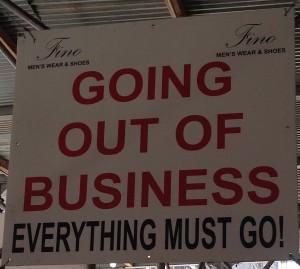Many businesses are organized as corporations because of the liability protections that this type of business structure provides. When a company is organized as a corporation, the business can live on beyond the lives of any one individual owner or group of owners and may sometimes be owned by many thousands of people. Corporations are created by filing paperwork with the state and must be also be dissolved or ended by filing required paperwork and documentation. 
Corporate dissolution can be a complicated process with many different steps required in order to officially end the existence of the business. It is important to be represented by a qualified and experienced San Diego, CA corporate lawyer for help winding up your business affairs and closing the corporation in accordance with all legal requirements. Sepahi Law Group, APC has extensive experience with dissolving large and small corporate enterprises and our attorneys can provide the guidance and advice you need throughout the process.
What is Corporate Dissolution?
Corporate dissolution is the termination of a corporation. When a corporation is formed, paperwork must be filed within the state of California. The corporation is created as a separate legal entity. It has its own debt obligations, it can be sued, and it must file its own tax return each year. Because it exists independently of its owners, the corporation has ongoing obligations.
As a result, when a business stops operating and the corporation no longer needs to exist, corporate dissolution needs to occur. The dissolution can be voluntary, it can be triggered by a resolution of shareholders, or it can occur involuntarily if the state suspends the corporation for a failure to pay corporate taxes or comply with other legal requirements.
The Process of Corporate Dissolution
The process of corporate dissolution can vary depending upon the circumstances. If the dissolution is involuntary, the process may be started by a valid complaint in the superior court of the proper county. The board will conduct the winding up of the corporate affairs, subject to supervision of the court. In some cases, the court will appoint others to handle the winding up of the corporation. The court may also impose restrictions on executive officers as the winding up occurs; however, if no restrictions are imposed then the officers can continue to exercise executive power throughout the corporate dissolution.
If the dissolution is voluntary, the process generally involves the Board of Directors drafting and approving a resolution for corporate dissolution. Forms must be filed with the California Secretary of State and all delinquent tax forms must be filed and payments made.
In both a voluntary and involuntary corporate dissolution, all creditors and shareholders must be given notice and an opportunity to make claims. Corporate assets must be distributed, and the court must issue an order that the corporation has been duly wound up and dissolved. When the corporate dissolution order is issued by the court, the corporation’s existence ceases.
An experienced attorney should be consulted to guide you through the process of corporate dissolution. Call today to schedule a consultation with a San Diego, CA lawyer at Sepahi Law Group, APC to learn how an attorney can help you to dissolve your corporation.

